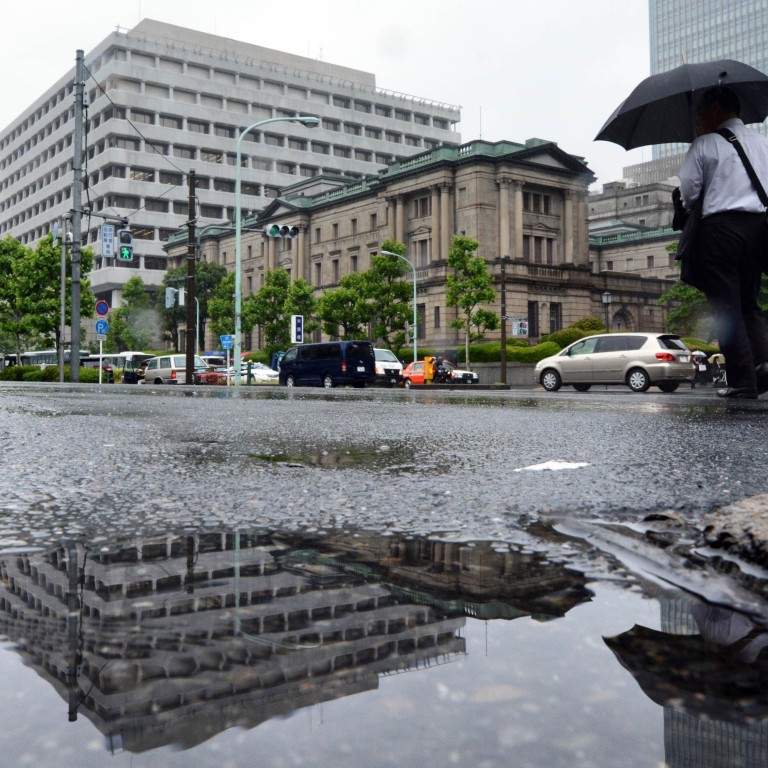
BOJ mulls big balance sheet after CPI target
Japanese central bank plans to buy long-term government debt until inflation hits 2pc to reduce the risk of a surge in long-term bond yields
Bank of Japan officials are considering maintaining a large balance sheet for the central bank even after it achieves its inflation target, reducing the risk of a surge in long-term bond yields, according to people familiar with the discussions.
Under the potential strategy, the bank would use cash from maturing securities in its portfolio to buy long-term government debt, the people said.
Governor Haruhiko Kuroda and his colleagues have yet to meet their inflation target, and pledge to continue asset purchases until consumer prices are rising at a 2 per cent pace.
The possibility of permanently large balance sheets - in Japan's case, now amounting to more than half the size of the economy - may become a global legacy of unprecedented stimulus measures.
The central bank discussions parallel preparations at the Federal Reserve to avoid an exit strategy of asset sales.
"There's no need for the BOJ balance sheet to go back to where it was," said Hiromichi Shirakawa, the chief Japan economist at Credit Suisse Group and a former central bank official. "It's a realistic approach to keep the size of the balance sheet large for a while to avoid a spike in yields."
Any abrupt end to government bond purchases by the bank could send borrowing costs soaring because it currently buys the equivalent of about 70 per cent of the new securities issued. Kuroda has repeatedly said it is too early to map out an exit strategy from stimulus.
The bank's balance sheet has expanded to 52 per cent of gross domestic product since Kuroda unleashed record easing in April last year, compared with 25 per cent for the Fed and 24 per cent for the Bank of England. The Bank of Japan held 165 trillion yen (HK$12.5 trillion) of long-term government bonds as of May 31.
In the US, Fed officials are preparing to keep their balance sheet close to record levels for years on concern that selling bonds from a US$4.3 trillion portfolio could crush the US recovery. Minutes of their last meeting made no mention of asset sales.
Officials worry that such sales would spark an abrupt increase in long-term interest rates, making it more expensive for consumers to buy goods on credit and companies to invest, according to James Bullard, the president of the Federal Reserve Bank of St Louis.
In Japan, 10-year bond yields remain the lowest in the world, trading at about 0.6 per cent, even as the Bank of Japan starts to drive inflation higher. Consumer prices excluding fresh food rose 1.5 per cent in April from a year earlier, based on a bank estimate stripped of the effect of a sales-tax increase.
If the bank prolonged large-scale bond purchases after reaching its inflation goal, it would need to avoid creating the impression it was financing government spending, the people said. Any extension of the purchases would come only after a debate, since not all of the people taking part in the bank's discussions say they would be in favour.

